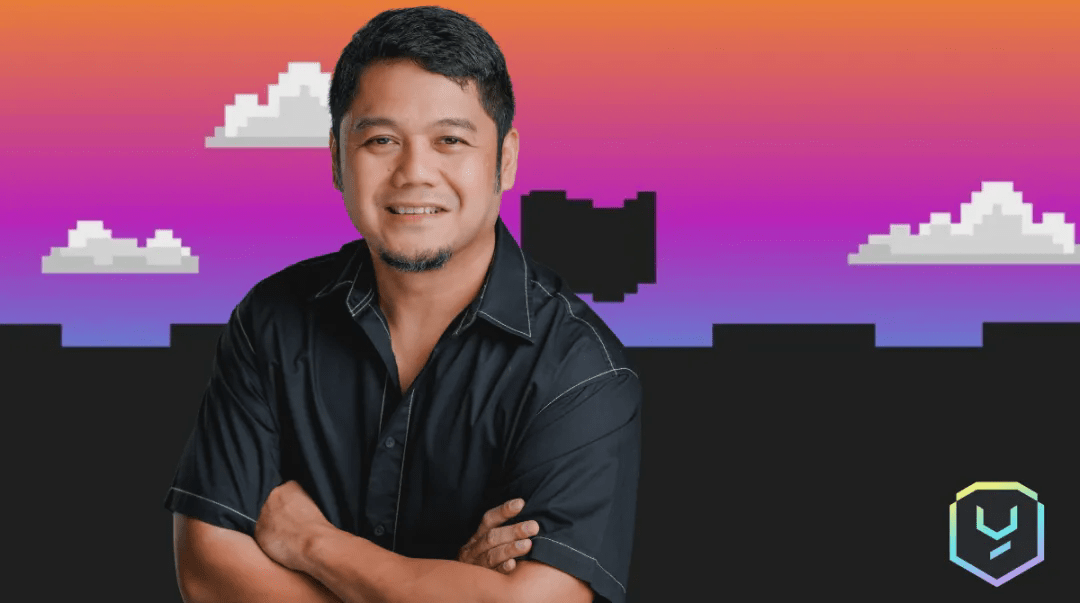
Yield Guild Games (YGG) is a global gaming community network dedicated to connecting players, teaching blockchain-based games, and sharing rewards earned by players. YGG is known as the 'Guild of Guilds' and serves as a hub for groups around the world.
The organization was co-founded in 2020 by veteran game developer and Altitude Games co-founder Gabby Dizon. Today, it has developed into an ecosystem composed of local chapters, each with its own leaders, onboarding systems, and training programs. Recently, it has expanded into the game publishing field, defining a new game genre called 'Casual Degen', which is easy-going, fun, fast-paced, and features cryptocurrency as a native element in the games.
One of YGG's latest projects is LOL Land, a browser-based casual board game where players roll dice to move pieces and earn points, which can be exchanged for YGG tokens and NFTs. This game combines casual strategy with NFT ownership and serves as a testing ground for creative collaboration.
A recent example is the collaboration with Gigaverse, which is a popular role-playing game in the crypto gaming community and is the first game that YGG signed as a third-party publishing partner.
In this interview, Dizon discusses why Gigaverse is a great fit for collaboration, how the decentralized structure of Yield Guild Games works, and why he believes stablecoins may be the most practical payment solution in web3 gaming.
Note: This interview has been edited for brevity and clarity.
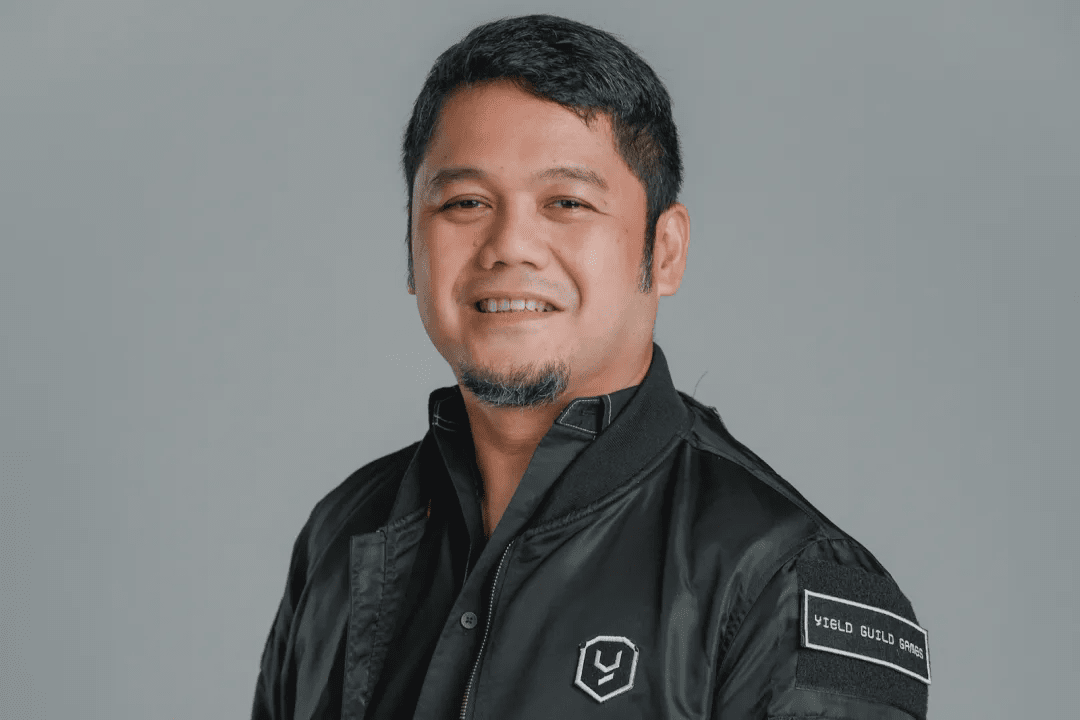
OpenSea: Gabby, let’s start with the recent news: the collaboration between LOL Land and Gigaverse. Players are currently enjoying the fun of the Gigaverse board in LOL Land, and all of this is happening on Abstract Chain. How was this collaboration facilitated?
Gabby Dizon: We launched LOL Land over two months ago, and we want to enjoy the fun of the game with the entire Abstract community. It’s important to not just focus on technology when launching a game on-chain; IP collaboration can make the culture around the player community more appealing.
We examined popular games and wanted to collaborate with Gigaverse. We hit it off immediately and planned a meaningful cross-IP collaboration on both the front end and back end. On the front end, we set up the GigaLand board in LOL Land and the LOL Land loot boxes in Gigaverse.
On the backend, smart contracts are responsible for executing payments, ensuring that 50% of the NFTs minted on the GigaLand board belong to Gigaverse while 50% of the loot boxes minted belong to YGG.
OpenSea: When you determined that Gigaverse was the ideal partner, what specific aspects did you value? What do you consider when looking for partners? What makes Gigaverse attractive?
Gabby Dizon: Gigaverse is a very native cryptocurrency game that has been fun from day one. At first glance, it seems simple—it’s a rock-paper-scissors RPG game—but they have built rich loops on top of that. I couldn't stop playing when I first started; I kept coming back every day. I understand why the player community loves it so much.
OpenSea: Before collaborating with games, do you require the game itself to be something you enjoy? Do you test each game?
Gabby Dizon: Not every game is selected, but we do choose quality ones. When I tried Gigaverse, I immediately saw its quality, so we collaborated.
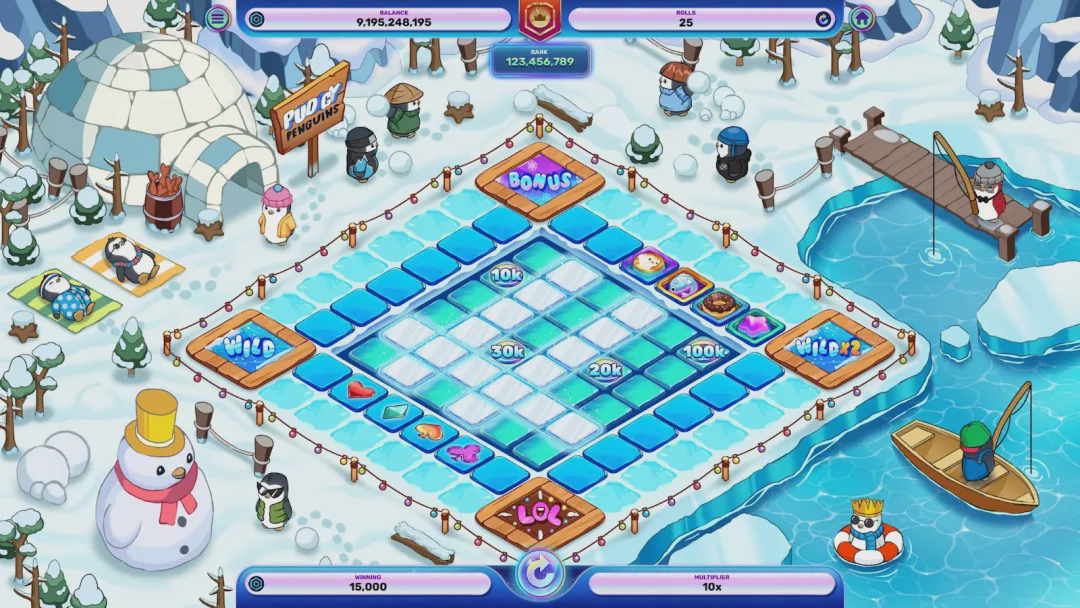
OpenSea: You mentioned that smart contracts were one of the factors that piqued your interest in Web3. What was the situation then? Please take us back to 2017.
Gabby Dizon: I had heard of Bitcoin, but in the Philippines, its primary use is for remittances. As a game developer, I wasn’t interested in it. When I realized that you could transfer value within the gaming economy (which has always existed for us) and anchor it to real-world value outside of the game, it was an enlightening moment. It was amazing.
I learned something through CryptoZombies, a tutorial on how to build simple games using smart contracts. Then at the end of 2017, CryptoKitties launched. They didn’t invent NFTs, but they promoted NFTs, and it blew my mind. I thought, 'This is the future of gaming.'
OpenSea: As a traditional gamer, were you surprised that gamers did not immediately embrace NFTs?
Gabby Dizon: Players are very passionate about their games, and there’s resistance at each platform transition—console players resist PC, PC players resist mobile, paid mobile players resist free games, and now free game players resist cryptocurrency. This is normal. Ultimately, a really cool game will showcase this technology, and then it will be widely adopted. I expect cryptocurrency games to follow a similar trajectory.
OpenSea: What would you say is the 'gateway game' that hooked you on web3 gaming?
Gabby Dizon: In 2018, Axie Infinity had less than 500 members on Discord. It was a niche game for players who liked Ethereum and wanted to try using Ethereum and smart contracts in games. It was not like today, where it’s a full platform with millions of users; back then, it was just a niche game in a niche industry.
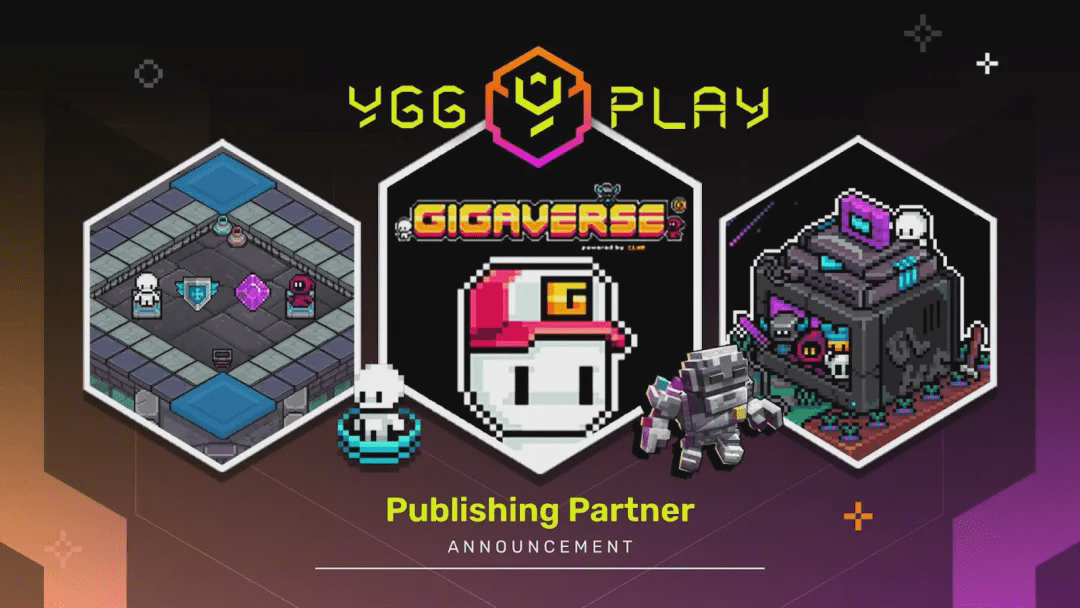
OpenSea: It feels like a long time has passed, yet it seems to have gone by in the blink of an eye. Reports say that Gigaverse reached an annualized revenue of $6 million in just a few months, without venture capital or paid advertising, correct? What do you say to those who believe that Web3 no longer has organic growth? What is currently driving this growth in the market?
Gabby Dizon: Interestingly, when Dith and his co-founder created Gigaverse, Dith was still doing other work. After the game launched, it received a very enthusiastic response, and Dith had to resign. This is the ultimate dream of independent developers; they are not bound by investors' expectations or some scaling pressures. They pour their creativity into the game, and it shows—this game is performing exceptionally well now.
OpenSea: You call this a developer's dream, which is interesting. I remember in 2021, at the 'Crypto Monday' event in New York, I met a former developer who had just left a large game studio. At that moment, it felt like a real wave, the room was full of energy, and the developers said, 'We won't let the studio dictate our creative direction, nor will we let the studio take our IP and monetize it without us.' It really felt like a Cinderella scene.
Gabby Dizon: In the Web2 era, the relationship between publishers and developers usually meant the publisher owned the intellectual property, even if the IP was created by you. They had the users and profited from them while you only received royalties after recouping the initial payment. With smart contracts, we can create fairer outcomes for all participants.
OpenSea: Let’s talk about the activities in LOL Land-Gigaverse—it has been running for over a week now, and there are streamers and KOLs involved, players like Elisa, YellowPanther, Icy, Raiden, and Storming have participated in the games and livestreams. So far, how has the response been? How have creators helped promote these games?
Gabby Dizon: In the cryptocurrency space, creator-driven marketing is crucial. When most people don’t have wallets, you can’t rely on traditional performance marketing like Facebook ads. You have to reach them through the channels they are already engaged with and then get them to try the game. We have been tracking game performance through creator spending, and the results are significant.
OpenSea: How important are the influence and exposure of creators compared to the game itself? When you receive feedback from key opinion leaders and understand the trends they are focused on, how do you balance creating a great game that keeps players coming back with these aspects?
Gabby Dizon: The game itself has to be good first, but key opinion leaders (KOLs) help attract more attention. If you can establish a strong community with creators, player guilds, and others from diverse backgrounds, player loyalty will be higher, and collaborating with creators is very important.
OpenSea: What were the most striking game elements in this collaboration that kept people coming back?
Gabby Dizon: Both games are interesting in themselves, but the authenticity of the IP makes this game even more special. When players play GigaLand board in (LOL Land), it feels like playing in Gigaverse, this sense of reality resonates with players and makes the gaming experience genuinely exciting.
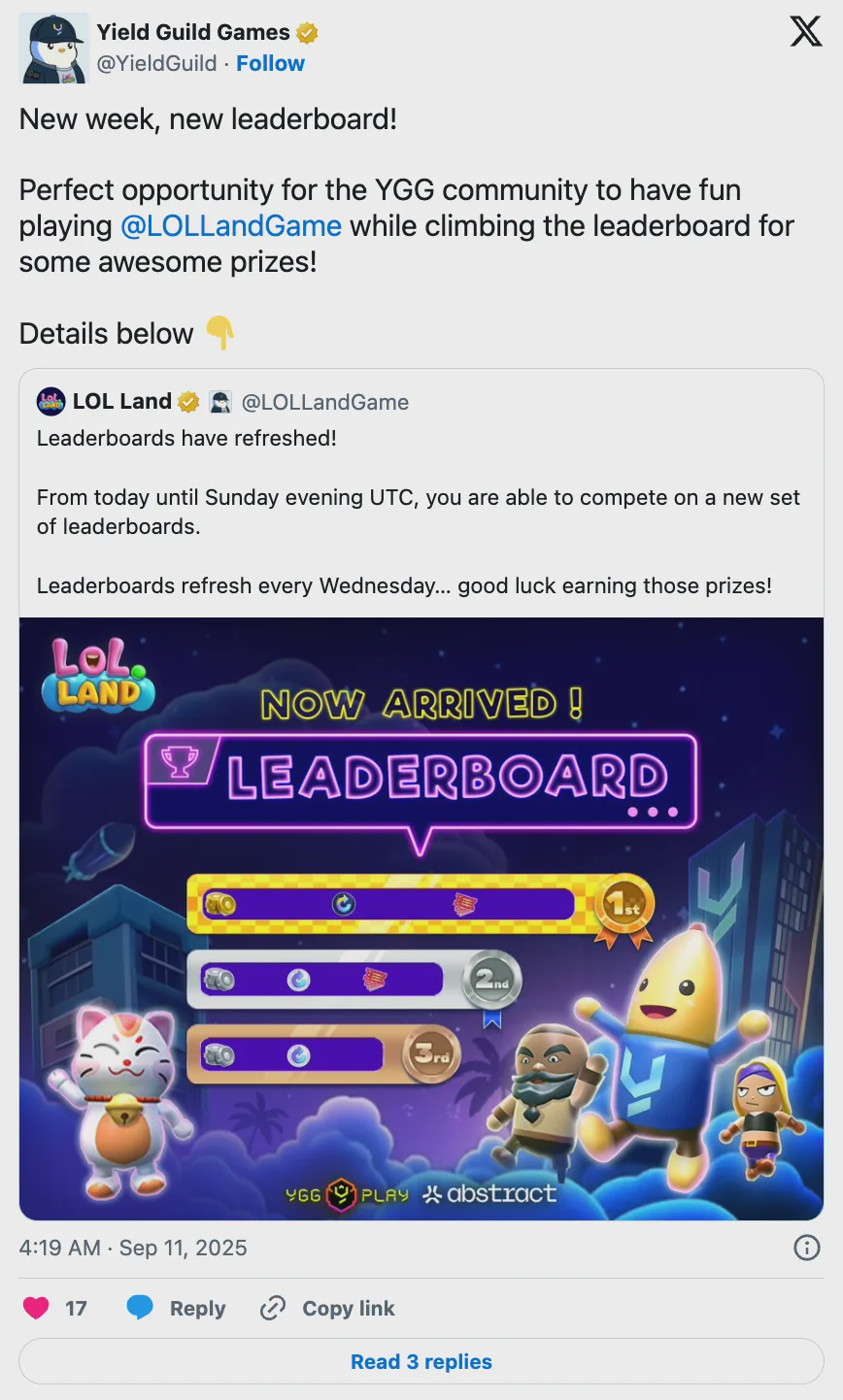
OpenSea: Okay, let's talk about Yield Guild Games. First, you were established in 2020, right?
Gabby Dizon: That's right.
OpenSea: You describe yourselves as 'the guild of guilds'—a decentralized network where each guild operates almost like its own local chapter. Can you elaborate on how this guild structure works? How did you conceive it? What developments has it seen in the past few years?
Gabby Dizon: This was not what we initially conceived, but rather something we gradually discovered while playing different games. It actually started five years ago with (Axie Infinity), which truly began to gain popularity during the pandemic in 2020, when those who were idle and stuck at home started playing this game.
Leaders naturally emerge in the game who teach others how to play. We’ve seen this phenomenon as well. We don’t want to create a guild ourselves; instead, we want to create a platform that can scale for these guilds. That’s what we’re doing—we help different guilds grow, and that’s how YGG started.
OpenSea: So how do guilds operate in practice?
Gabby Dizon: Each guild has a leader who is knowledgeable about in-game mechanics, and many members are locals who need extensive training—how to play the game, how to use wallets, and how to earn rewards. Players essentially integrate into Web3 by playing the game. Although user experience can be a challenge, building community can resolve many issues. Ultimately, some members grow and create their own guilds, recruiting players, and this cycle drives our growth.
OpenSea: It’s almost like humans self-organizing naturally without a central entity—we take responsibility ourselves.
Gabby Dizon: Humans are highly social creatures. When people move toward a common goal, they tend to join organized community structures, which usually have a leader. If you don’t like that leader, you can join another guild or create your own guild.
OpenSea: How much has gaming taught you about human psychology?
Gabby Dizon: Before becoming a game developer, I learned a lot from games like (World of Warcraft)—team structures, drama, leadership, conflict resolution, etc. You can see the aspects of human behavior.
OpenSea: Long before YGG was established, you had already begun to change people's behavior. In 2014, when you co-founded Altitude Games with others, you successfully solved the problem of credit card penetration by allowing players to purchase in-game items using prepaid mobile top-ups. What problems did you solve at that time? How did you overcome them?
Gabby Dizon: In the U.S., it’s common to shop online with credit cards; you wouldn't even think twice about it. Even ten years ago, it was very convenient, but in emerging markets like the Philippines, it’s different. People want to pay smaller amounts—like paying 10 cents in local currency instead of $1—and the credit card penetration rate is only about 3%.
This led to e-commerce and digital goods being severely overlooked in the Philippine economy, so we partnered with a telecommunications company to allow players to pay for in-app purchases using their call time. Adjusting the game to fit local payment habits was key.
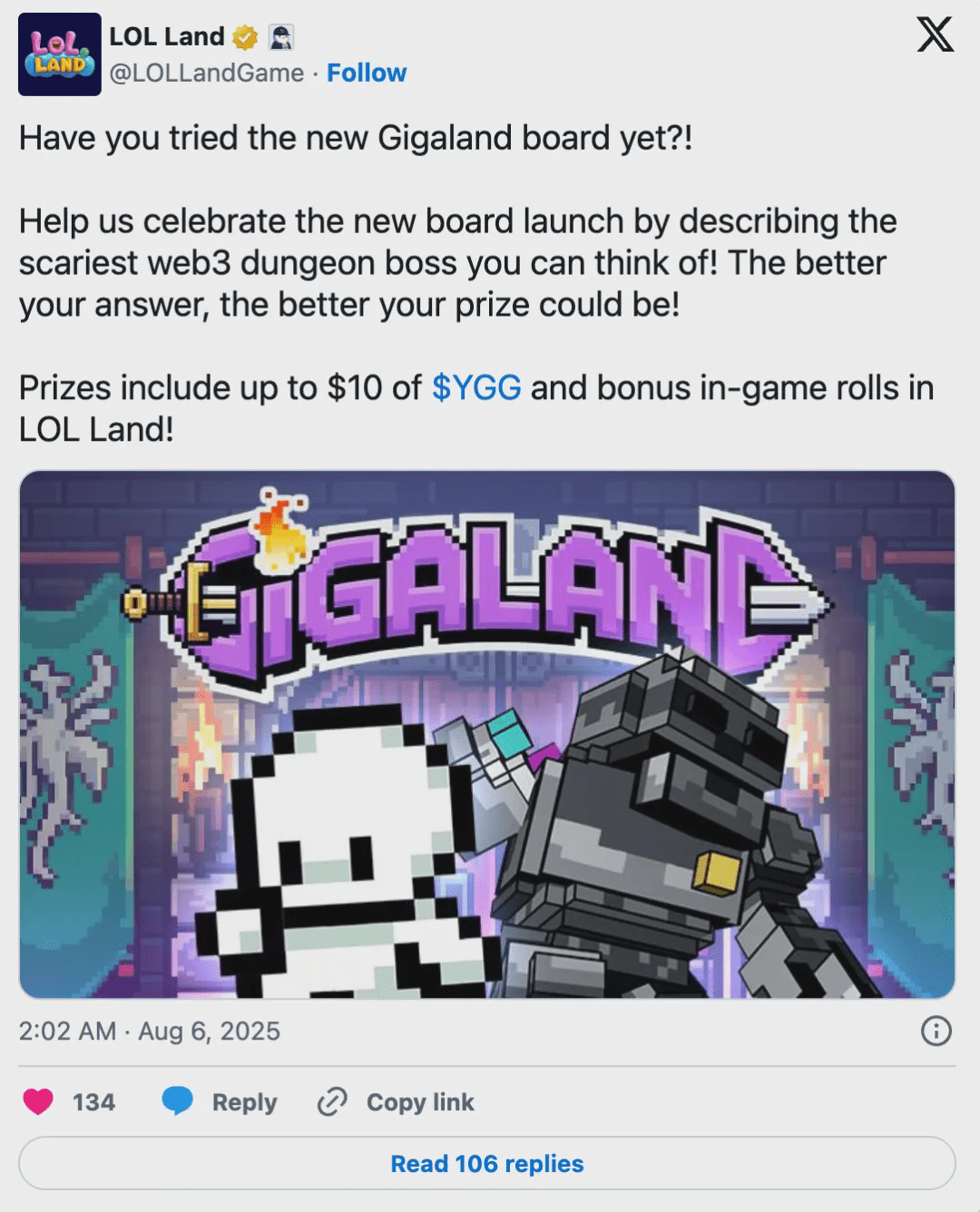
OpenSea: Transforming it into web3, since you are no stranger to solving payment friction, what lessons did you learn while helping people use their first wallets?
Gabby Dizon: We leverage experiences learned from mobile games and organizing guilds to bridge the gaps in user experience. Now, creating wallets has become easier—you can log in with an email, start playing until you receive your first cryptocurrency, whether it’s a token or NFT. We combine the community, local payment points, and commonly used tokens (like ETH, USDC, or USDT, which is particularly common in Asia) to attract as many players as possible.
OpenSea: Let’s talk about the Blockchain Game Alliance (BGA). You are one of the founding board members. For those unfamiliar with BGA, what is it? Who are its key participants?
Gabby Dizon: BGA was established in 2018 as a non-profit organization aimed at promoting the interests of blockchain games and their developers. I am one of the founding board members, and the current chair is Sebastien Borget from The Sandbox. We are committed to making blockchain games more mainstream and providing developers with the tools they need.
OpenSea: What needs are you meeting for developers?
Gabby Dizon: For example, how do we facilitate crypto payments and connect to fiat rails? What tools can we use? How do we market and expand the user base?
OpenSea: Are stablecoins becoming part of the conversation?
Gabby Dizon: Of course, the acceptance of USDC has greatly increased; it allows for instant cross-border payments without the need for local payment channels and avoids refunds, as refunds would erode profits when buyers withdraw large transactions.
OpenSea: How often do refunds occur?
Gabby Dizon: It’s probably between 1% and 2%, but sometimes players buy items worth $500 in the game and then decide not to pay. When this happens, you really have no power; credit card companies almost always side with the user, so you just have to take your losses.
OpenSea: So basically, it’s buyer's remorse?
Gabby Dizon: Yes, it’s like someone bought something from Macy's and then wore it to a party, only to return it afterward.
OpenSea: Perhaps people will think, 'Well, it’s digital, so I’m not wasting anything.' But that is clearly a misunderstanding.
Gabby Dizon: Yes, it is possible.
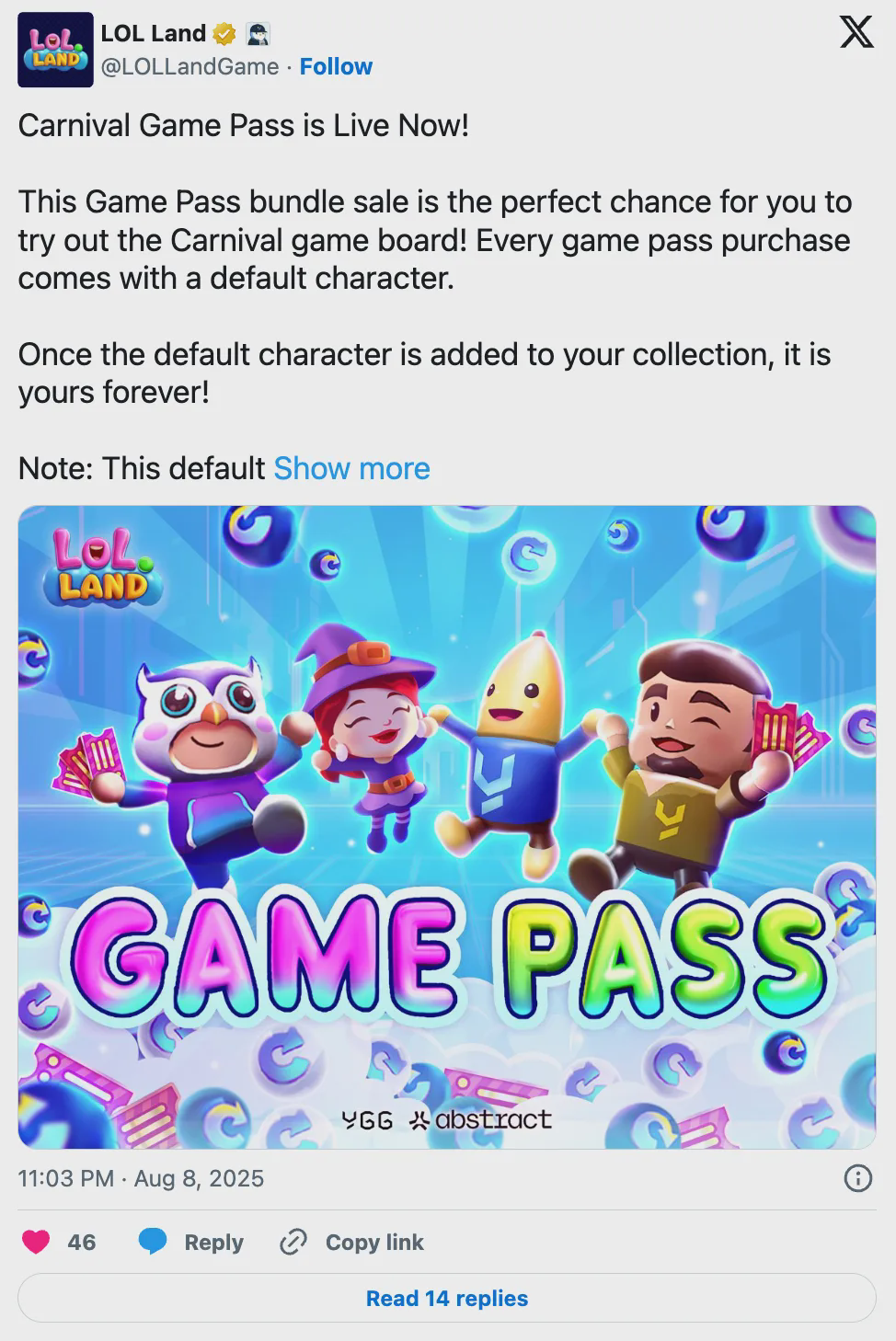
OpenSea: The hype cycle in Web3 is very short; how do you balance these hype cycles with long-term vision?
Gabby Dizon: The core product vision must be rooted in timeless ideals—creating unprecedented products, but the way we bring them to market may change with trends: partnerships, influencers, platforms, and IP collaborations.
OpenSea: If you could wave a magic wand to help YGG reach millions, what would you change?
Gabby Dizon: Widely accepting USDC.
OpenSea: This actually seems possible.
Gabby Dizon: Yes, to be honest, we are already on our way.
OpenSea: Lastly, here’s a fun question: what game do you always play when you're not working?
Gabby Dizon: I love role-playing games, especially narrative-driven ones. This year's (Expedition 33) is fantastic, and last year it was (Baldur's Gate 3). I just love playing these types of games.
OpenSea: So interesting, Gabby. It’s great to chat with you. Thank you for taking the time, and congratulations again on your collaboration. This conversation has been truly enjoyable. Take care, and talk again soon!
Gabby Dizon: Thank you, goodbye!
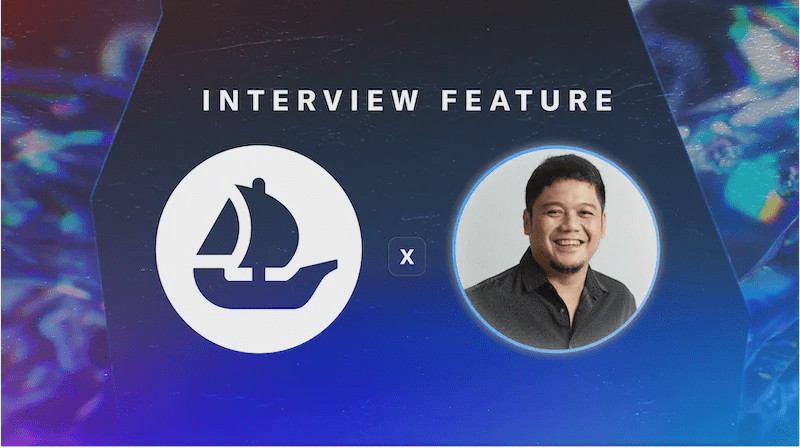
Content you care about from OpenSea
Browse | Create | Buy | Sell | Auction

Follow the OpenSea Binance channel
Stay updated



